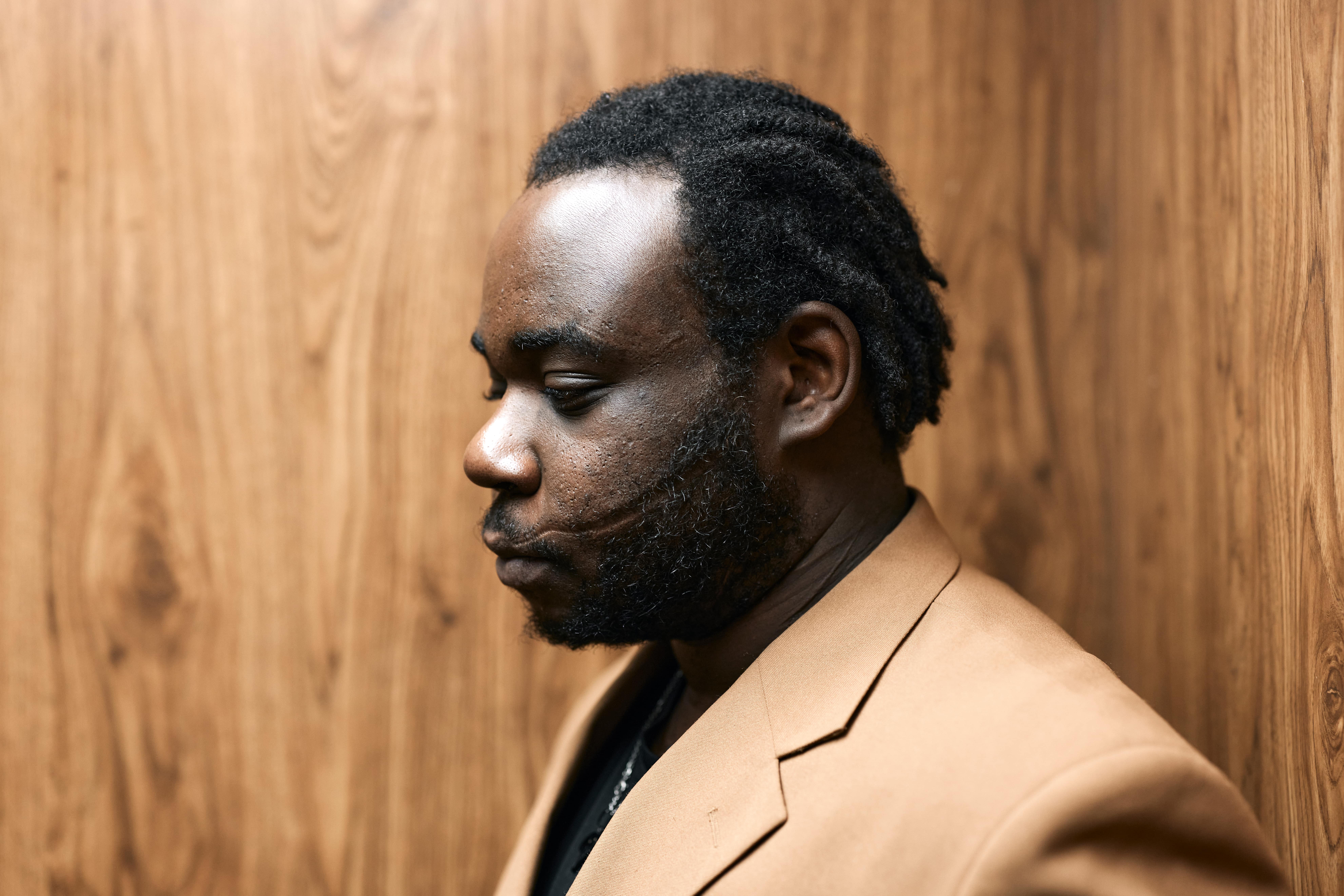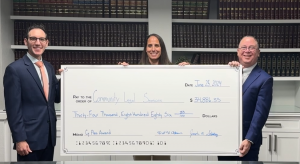‘Banned From Public Spaces’: Report highlights criminalization of homelessness

In this playlist: People who have experienced homelessness in Athens, Georgia, share stories of facing harassment and inhumane treatment, and discuss how the support they’ve received has enabled them to overcome adversity.
Walk through downtown Athens, Georgia, on any given day and you may hear the sound of drumsticks – sometimes heavy, sometimes sharp, sometimes warm – beating in complex rhythm against upturned 5-gallon buckets.
The drumsticks are wielded by a man named Jerry. The buckets they strike serve as drums. But to Jerry they hold memories of the rainwater his grandfather used to catch in buckets very much like them, receptacles in which Jerry first found rhythm as a young boy.
Jerry is a musician. He is a father, a brother, a son. He is a man with a rich and complicated story. But he is also a man defined by this society not for all those parts of himself but for just one thing: He has for much of his life experienced homelessness. And for that, Jerry has repeatedly been cited, arrested and banned from public spaces.
In towns and cities across the U.S., men and women like Jerry are beset upon by public policy and a criminal legal system that has been weaponized against them. Bans on sleeping, camping or panhandling in public spaces, passed in increasing numbers by state and local governments, are criminalizing people with no place to shelter, instead of addressing them with comprehension and compassion.
A new report released by the Southern Poverty Law Center draws attention to this inequity.
The report, Sheltering Injustice: A Call for Georgia to Stop Criminalizing People Experiencing Homelessness, is focused on Georgia. There, a state law went into effect in 2023 requiring the enforcement of bans on public camping. But lawmakers passed the legislation with no study of the immediate impact it will have on people experiencing homelessness.
Stepping into that gap, the SPLC outlines the lasting harm brought on by the state’s criminalization of people experiencing homelessness – specifically in Black communities and other communities of color. The report brings to task state and local officials not only in Georgia but across the country. It explores the racist history behind the criminalization of homelessness, and it makes policy recommendations aimed at ending punishment against people for simply being unhoused. It is also studded with the voices and stories of real people experiencing homelessness today.
For these people, “their backs are against the wall,” said Jerry, whose last name is being withheld by the SPLC to protect his privacy. “And sometimes they get in trouble, they get in trouble just for being homeless. And that is the most degrading thing. It is insensitive. You take away my freedom, you take away my pride, you take away my being, just because I may be down on my luck. I find it almost inhumane.”
In the report, the SPLC calls for an end to current laws that criminalize homelessness. It calls for adding housing status as a measure of homelessness to the list of protected categories in relevant anti-discrimination laws. And it calls for investment: in housing opportunities, rent regulation and programs like cash assistance to allow people access to quality housing.
“In recent years the number of people experiencing homelessness has risen and so too have the efforts to criminalize this. We see this across the country,” said Gina Azito Thompson, a policy analyst for the SPLC’s Eradicating Poverty initiative, and author of the report. “Homelessness itself is a traumatic experience. Rather than further traumatize people by making the simple act of sitting and sleeping a crime, the simple and proven solution is just to give people resources and housing.”
A painful truth
The problem of homelessness in the U.S. is deep and getting deeper, the SPLC report makes clear. Since 2017, according to the National Alliance to End Homelessness, the number of people experiencing homelessness across the country has risen by more than 6% to more than 500,000. More than 49,000 of those people are in the Deep South states of Alabama, Florida, Georgia, Louisiana and Mississippi – states where the SPLC focuses the majority of its work.
The data tells the painful truth: The number of people experiencing unsheltered homelessness is trending upward across most racial, ethnic and gender subgroups, with people of color overrepresented among them. In addition, the ranks of people experiencing unsheltered homelessness are unduly populated by survivors of domestic violence, members of the LGBTQ+ community and people with disabilities.
Nationwide, the shortage of affordable housing is wreaking havoc on families of modest means, forcing still more people onto the streets. Nearly two-thirds of renters with low-incomes face “severe cost burdens,” meaning they spend more than half their income on rent and utilities, according to the Harvard Joint Center for Housing Studies.
Many neighborhoods, both liberal and conservative, oppose plans to build affordable housing in their communities. Around the country, exclusionary zoning raises rents by limiting the housing supply. The cost of living is rising while the minimum wage in most parts of the country remains stagnant. And the rising cost of rental housing is not reflected in federal rental housing assistance estimates.
In Georgia, the state where the SPLC’s Sheltering Injustice report is focused, the barriers to affordable housing are particularly acute. Between January and September 2023, more than 100,000 eviction notices were filed in the Atlanta metropolitan area, the report shows. The number of rental units considered affordable under federal standards fell short in 2022 by more than 200,000, according to data cited in the report. More than 10,000 people in the state were reported in 2022 to be experiencing homelessness.
A body set up in 2022 by state lawmakers to examine the issue, the Georgia Senate Study Committee on Unsheltered Homelessness, took testimony from people who were formerly unhoused and from organizations that support people experiencing homelessness. But the committee, operating even as the state law mandating the enforcement of bans on camping went into effect, did not study the inpact of laws and ordinances that criminalize homelessness on people experiencing it.
‘Highly offensive’
If the lawmakers had asked people like Jerry, they might have learned some things.
Living in an apartment in Athens these days, thanks to assistance from the support services of a shelter, Jerry, 30, has been unhoused off and on since he was 17. A pastor’s son with two sisters and a brother, Jerry said his troubles with his family started early. It was his grandparents, especially his grandfather, the one with the rain buckets, who made him feel special. One year his grandfather persuaded his father to buy the little boy a drum set for Christmas, Jerry said.
“From that day on, I’ll never forget, I played those drums from Christmas morning to, like, 12 a.m. the next day, and I was like, I’m never gonna leave drums. So, drumming has always been a part of my life. To keep the tradition, and to pay homage to my grandfather, my grandma, I put the buckets out and I make them sound like drums, like real drums and a real drum set.”
The first time Jerry was arrested was soon after he had struck out on his own, he said, using money saved from mowing lawns to board a Greyhound bus away from the house where he did not feel wanted. A former girlfriend was living in Virginia. They had broken up, he said, but they remained friends. He started sleeping outside her home, leaving early in the morning before her mother woke.
“I wanted to feel welcomed, and I wanted to feel loved,” Jerry said. But eventually, the mother called the police. Surrounded by four police officers, he recalled, he was terrified. He ended up in jail for criminal trespass.
More recently in Athens, where he takes his buckets out to perform and share his love for music nearly every day and attracts a loyal following, Jerry said he has been harassed and cited for years by local law enforcement officers, usually for what they have told him are violations of a noise ordinance.
He has a daughter, almost 3 now. Jerry said he met her mother when they were both experiencing homelessness. His little girl lives with her mother now, but, Jerry said, his love for her is pushing him to try to improve his life.
“She’s really the reason for the season,” Jerry said. “Literally, she’s like a godsend. She changed me. She helped me become a better person. She is teaching me to love myself and, like, get some stabilization in my life so that I’m able to provide for her when she does come to visit or live with me.”
Jerry is hopeful he will be able to find permanent housing. But he is committed to continuing to stand up for the rights of people experiencing homelessness.
“It’s highly offensive” the way people experiencing homelessness are treated, Jerry said.
“I used to call ourselves travelers. Travelers, because we was always on the move, was always on the road, no matter what did the day bring. Rain, sleet or snow, always on the move.”
Photo at top: Jerry, 30, who lives in Athens, Georgia, has been unhoused off and on since he was 17. (Credit: Ben Rollins)
Article originally published on www.einpresswire.com as ‘Banned From Public Spaces’: Report highlights criminalization of homelessness



